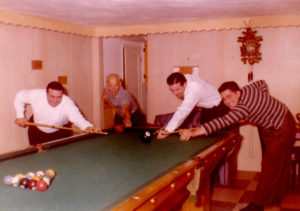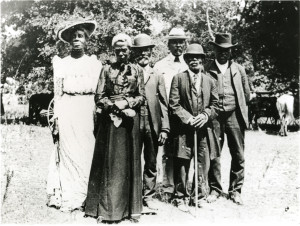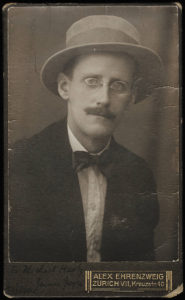I think my dad would not put up a fight if I told you he is not the most patient man in the world. And then who does he get for a kid but me, a kid who at times required an extra measure of patience. And still does. Dad will watch me fumble with screwdrivers and wrenches, or he will stand above me at the open hood of the truck while I am beneath it, on my back, reciting aloud “righty tighty, lefty loosey” (and which way exactly is lefty when you are on your back beneath the truck, anyway?) praying to God, hoping to God that I am not about to make the oil filter even tighter than it was the last time I turned it the wrong way. He shakes his head and no doubt thinks, “Where did this kid come from?”
And it has always been thus. One of my earliest memories of Dad/Son quality time is of Dad setting up my electric Aurora race car set. We got the tracks laid out, the hairpin curve, the traffic light, the whole works, and then he said, “Okay, give me some juice.” I went to the kitchen, poured a glass of orange juice, and brought it to him. There was some head-shaking that day, too.
We all have our strengths. Dad’s strength––his superpower––is knowing all this stuff, knowing how tools work, knowing instinctively which way to turn the oil filter for an oil change. And they are our superheroes, from the start, our dads. Today, Father’s Day, we honor them all: the dads we were given, the dads who chose us, the dads we have chosen ourselves, for they come in many varied types. Sometimes they are our grandfathers, or our uncles, or brothers or old friends who just seem like dads to us. The definition is loose, but the shoes to fill are large.
These days, Dad says “thank you” a lot to me, and to Seth, the other son I gave him. I always say “thank you” in return. He stood there at our wedding, and I imagine that is not at all something he would have pictured himself doing if you had asked him years ago. But he did stand there for us, and I know he was proud of us, and completely welcoming and loving. At least Seth knows how to handle a socket wrench. Perhaps Dad figures I’ll be all right, after all. He did a good job. And so to my father, to Seth’s father, to all our fathers: Happy Father’s Day.
Image: My cousin Maria found this photo taken in the basement (“a bass’u cell,” in my grandparents’ dialect) of our old family home in Valley Stream, New York. That’s my dad on the right in the striped shirt; to his left is Doc, then Grandpa, and at the far left is Frank. Great guys every one, all worthy of happy Father’s Day wishes. There is Grandpa’s cuckoo clock; he pulled the weights up each morning. This was the same room as the race-car-juice incident.


